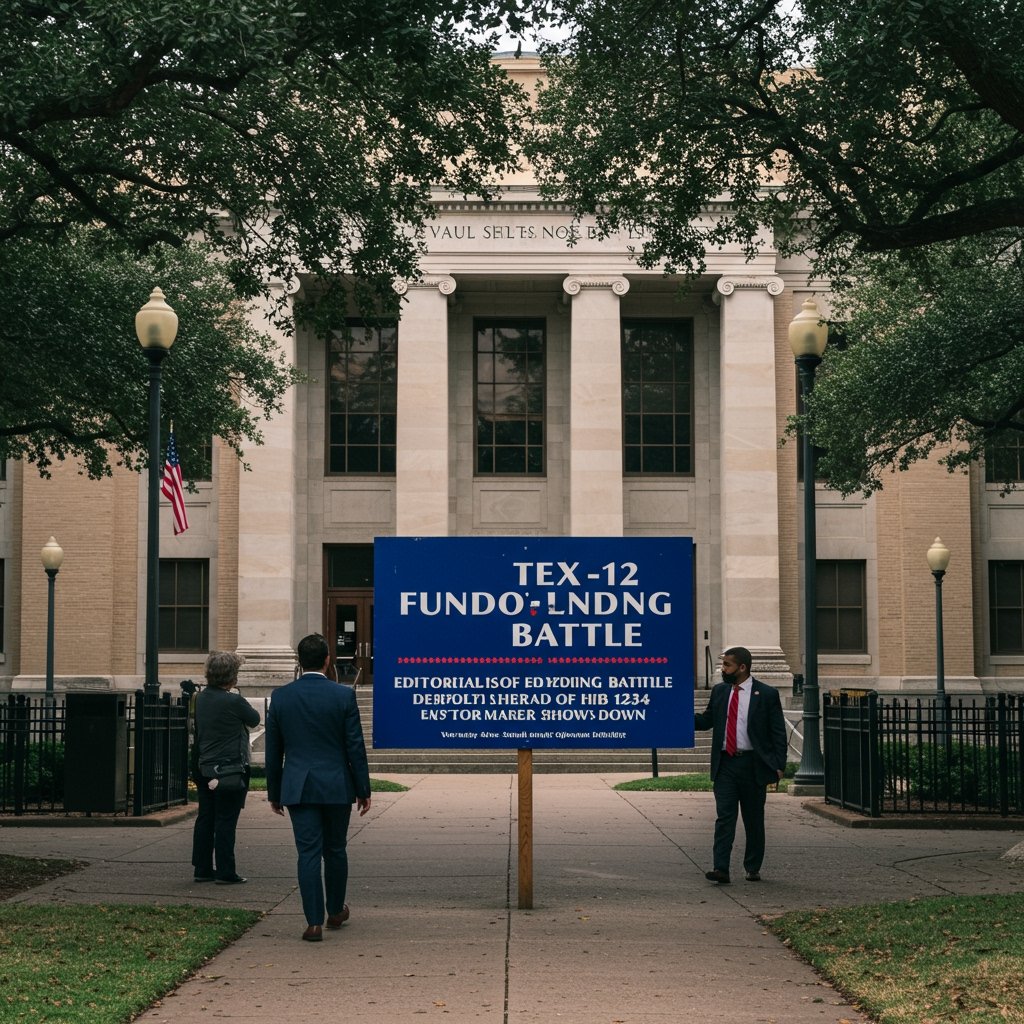Texas Editorials Grapple with K-12 Funding Future Ahead of Key Vote
A significant legislative debate is unfolding in Texas concerning the future of K-12 public education funding, with editorial boards across the state expressing sharply divergent views on proposed reforms. At the heart of this discussion is House Bill 1234, a comprehensive measure designed to overhaul the state’s complex school finance system. The bill, sponsored by State Representative Sarah Jenkins, faces a crucial test next week: a hearing before the House Public Education Committee scheduled for March 5, 2025. The outcome of this committee vote is widely seen as a pivotal moment that could determine the bill’s viability in the 2025 legislative session.
Understanding House Bill 1234
House Bill 1234 represents a significant legislative effort to address long-standing issues within the Texas public school funding structure. The cornerstone of the bill is a proposed increase in the per-student base funding amount. Currently, this base allotment serves as the foundational per-student amount allocated by the state to school districts, adjusted by various weights for student needs (e.g., bilingual education, special education) and district characteristics. HB 1234 seeks to boost this critical figure by a substantial $800 per student. This proposed increase aims to provide districts with more flexible funding to address rising operational costs, enhance educational programs, and potentially improve compensation for educators.
Beyond the base funding increase, HB 1234 also proposes adjustments to the state’s property tax compression rates. Property tax compression is a mechanism by which the state reduces the amount of local property tax revenue school districts are required to raise to meet a certain funding level, with the state providing the difference. The goal is often to provide relief to local property taxpayers by lowering the school district maintenance and operations (M&O) tax rate. The proposed changes in HB 1234’s compression rates are intended to work in tandem with the base funding increase, aiming for a balance between providing additional resources to schools and delivering tax relief to property owners across the state.
Proponents Argue for Teacher Pay, Tax Relief, and Modernization
Supporters of House Bill 1234, including Representative Sarah Jenkins and many aligned editorial boards, champion the bill as a necessary and beneficial step for Texas education and taxpayers. Their arguments often center on the direct impact the increased base funding could have on teacher salaries. They contend that an additional $800 per student would provide districts with the financial flexibility needed to offer more competitive pay, helping to attract and retain high-quality educators, particularly in areas facing teacher shortages. Editorialists favorable to the bill highlight that competitive teacher compensation is crucial for improving educational outcomes and supporting the professionalization of the teaching force.
Furthermore, proponents emphasize the property tax relief component of the bill. They argue that adjusting property tax compression rates would translate into tangible savings for homeowners and businesses, addressing concerns about rising property tax burdens across Texas. Editorials adopting this perspective often frame HB 1234 as a fiscally responsible approach that simultaneously invests in education and provides much-needed relief to taxpayers. They may point to the bill’s potential to modernize aspects of the finance system that they argue have become outdated or inefficient.
Critics Raise Alarms Over Equity and Funding Gaps
Conversely, critics of House Bill 1234, represented by a significant portion of the state’s editorial commentary, voice serious concerns, primarily focusing on equity. Their core argument is that while the bill offers a seemingly straightforward funding increase and tax relief, its structure may disproportionately benefit property-wealthy school districts while failing to adequately support property-poor school districts. These districts, which rely more heavily on state funding due to a lower local tax base, may not see the same level of benefit from the proposed mechanisms as their wealthier counterparts.
Editorial boards critical of HB 1234 express fears that the bill, as currently drafted, could exacerbate existing funding gaps between rich and poor districts, potentially widening disparities in educational resources and opportunities for students. They question whether the $800 base increase is sufficient to address the unique challenges faced by districts serving high populations of students with greater needs or those operating in areas with limited local tax capacity. Critics argue that a truly equitable school finance system requires more targeted funding mechanisms that account for the varying fiscal capacities and student needs of districts across the vast and diverse state of Texas. Some editorials suggest that the tax compression components, while offering relief, may inadvertently reduce local control or limit a district’s ability to raise funds necessary for specific local priorities.
The Role of Editorial Boards and the Road Ahead
Editorial boards play a vital role in shaping public discourse and influencing legislative priorities by providing analysis, context, and opinion on complex policy issues. The stark division among Texas editorials regarding HB 1234 underscores the complexity and high stakes of school finance reform. These differing perspectives reflect broader debates about the state’s fiscal priorities, the balance between state and local funding, and the fundamental goals of the public education system.
The upcoming hearing on March 5, 2025, in the House Public Education Committee is a critical procedural step. It is where the bill will undergo detailed scrutiny, receive public testimony from stakeholders representing diverse interests (including educators, administrators, parents, and advocacy groups), and face potential amendments. The committee members’ vote will determine whether HB 1234 advances to the next stage of the legislative process or stalls. Lobbying efforts and public advocacy surrounding the bill are expected to intensify in the days leading up to this hearing.
The outcome of the committee vote is not just a procedural decision; it is seen as a key indicator of the bill’s overall support and prospects for passage during the 2025 legislative session. Should it pass the committee, HB 1234 would then need to navigate the full House, potentially the Senate, and reconcile any differences before reaching the Governor’s desk. The vigorous debate currently playing out in editorial pages across Texas highlights the significant challenges and competing priorities inherent in reforming a school finance system that impacts millions of students, educators, and taxpayers.






